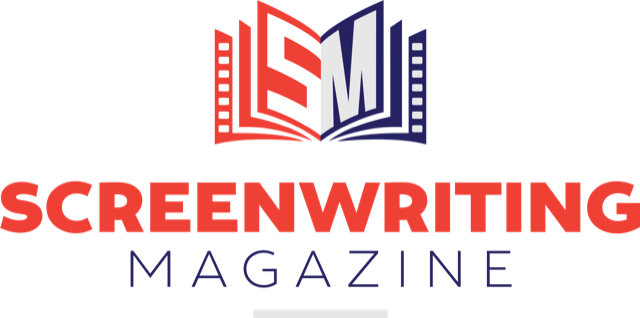Every writer dreams of the day when a producer reads their script and shouts out a jubilant “YES!” when asked if they like it. We all want to be an overnight success giving an awards speech thanking those people who have been nice to us and there are probably more than a few of us who want to name every single one of our enemies until the music starts at which point we will produce a megaphone from under our dress and continue.
One of my professors at UCLA once said that Hollywood is the only town where you can die of encouragement, and I think he was right. The dirty secret in Hollywood is that YES doesn’t always mean GO DIRECTLY TO AWARDS SEASON. In fact, it almost always means something entirely different.
But what? What are the types of “yes” in Hollywood, and what do they actually mean?

Bird Box (2018) Photo courtesy: Netflix
No. 1 — Yes, meaning I don’t want to say no to your face
Nobody likes delivering bad news to a writer. It’s an unpleasant task at best. Sometimes, producers, directors, and studios choose not to look rejection in the face. They shield themselves by saying “yes” even though they have no intention of moving forward. There’s no doubt about it: for writers, this is one of the most painful kinds of “yes” in Tinseltown.

Russian Doll (2019) Photo courtesy: Netflix
No. 2 — Yes, meaning probably not but I want to keep you on the hook anyway
Producers are tasked with finding good material. Sometimes, projects fall through the cracks or funding gets lost on particular scripts. They need a deep well of B plans they can use in case their A plan fails. Which means, someone can say “yes” but actually mean you’re their B plan. Being a B plan means a producer will keep you circling in a loop. But this isn’t the worst kind of “yes” because there’s always a chance you’ll end up the A plan—and that would be very, very good.

Incredibles 2 (2018) Photo courtesy: Walt Disney Studios
No. 3 — Yes, meaning I’m a cog in a wheel, let me send it up the chain
Getting this kind of “yes” is definitely a good sign. It means you’ve got a fan and someone thinks you should get your movie made. However, it also means you’re probably in for a wait. The first person who reads your script is hardly ever the only person who needs to read it. A lot of folks have to get their eyes on it before the project is greenlit. So put on your superhero suit and hang on—things are about to get interesting.

The Ballad of Buster Scruggs (2018) Photo courtesy: Netflix
No. 4 — Yes, meaning yes
After a bunch of people have read it and everyone has said “yes, meaning yes,” and the ink had dried on the Deal Memo, and the check has cleared at the bank, then you’ve sold your script and it’s time to celebrate! Maybe you’ll want to call a friend, or maybe you’ll want to open a nice bottle of sparkling water, or maybe you’ll want to ride a horse and sing a little ditty. It’s up to you! Selling a script is tough, so you deserve every ounce of joy you can wring from the experience.
Rejection in Tinseltown is complicated, but it’s a part of every single writer’s life. Nobody ever succeeded here without suffering a setback, but the only real way to fail is to quit. There just might be a “yes, meaning yes” out there waiting for you. So keep at it!




6 Replies to "The Four Types of “Yes” in Hollywood and What They Actually Mean"
Kenneth Wood June 25, 2019 (4:35 am)
Right now, I am in the third category on one of my scripts working toward category four.
Wish me favor.
Lance S. Parkhurst June 25, 2019 (7:10 am)
Thank you for the good information. However, I’d like to add a few personal thoughts.
Each writer’s situation is different, especially when certain people or organizations don’t want a writer’s story to ever be told. This is because the true facts of the situation shine a bright spot light into the shadows where some shady characters lurk. Like a vampire, they fear the spotlight, since your story is threatening to their shady existence. True stories sometimes fall into this category.
Each writer must gauge the ‘deal’ before them, inspect it from every angle and decide upon the sincerity and purpose of the offer. You as the writer initially have the reigns in your hands and are in full control, but as soon as you sign, you forgo some of your independence and choice. You as a writer must conduct due diligence on any offer put before you, hopefully with an experienced entertainment attorney you trust and can work with.
The writer and the production team must work honestly toward mutual goals and put in the hard work to assure those mutual goals will be achieved. You don’t want someone to ‘shelve’ your writing, only to have it collect dust somewhere.
This is the tough world of business and if you have a good story to ‘tell and sell’, make sure you don’t do anything foolish to compromise your position, independence and future options.
William Petersen June 25, 2019 (8:26 am)
Totally accurate……:) !!
A Stewart October 3, 2019 (11:00 am)
Seems like it would have been a more useful article to give ideas on how to tell which “yes” you’re getting.
phil hawkins November 25, 2019 (4:04 pm)
Getting a film made is kinda like catching trout in the stream with your bare hands.
Jenna Milly November 25, 2019 (5:39 pm)
I completely agree! Well said.